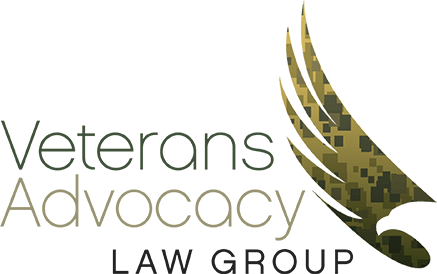
Building Your Estate Plan
If you are new to estate planning and have no documents in place, you should start by creating a will, trust, or both. These tools allow you to specify who will receive your assets when you pass away. Your will also allows you to name a guardian for your minor children and a person to oversee the estate administration process.
If you die without a will, your state government will ultimately decide how your assets will be distributed – and there is a good chance that distribution will differ from what you would have preferred. In many cases, you will benefit from more than a simple will. A trust can also facilitate asset distribution, but it gives you additional flexibility and privacy. Assets placed in trusts are not subject to the cumbersome probate process, which means your loved ones can typically receive their inheritances faster (and without court involvement).
In addition to a will and/or trust, it may be a good idea to create a Memorandum for Distribution of Tangible Personal Property. Our national Veterans estate planning attorney can review all available asset distribution mechanisms and ensure the tools you choose are consistent with your goals.

Why Is Estate Planning Important?
Veteran estate planning is important for several reasons:
Maximizing Benefits: Veterans may be entitled to various benefits, including pensions, disability compensation, healthcare options, and burial benefits. Proper estate planning ensures that veterans understand their eligibility for these benefits and take steps to maximize their access to them. By working with a veterans estate planning attorney, veterans can navigate the complex rules and regulations associated with these benefits and ensure that they receive the assistance they are entitled to.
Protecting Assets: Estate planning allows veterans to protect their assets and ensure their proper distribution. Through the use of wills, trusts, and other legal instruments, veterans can determine how their assets will be managed and distributed upon their death. This can help avoid disputes among family members and ensure that their wishes are carried out.
Providing for Loved Ones: Estate planning enables veterans to provide for their loved ones after their death. This includes designating beneficiaries for life insurance policies, retirement accounts, and other assets. It also involves appointing guardians for minor children and making arrangements for their care and financial well-being.
Special Considerations: Veterans often have unique considerations that need to be addressed in their estate planning. These may include military benefits, disability compensation, and healthcare options. Veterans estate planning attorneys have the knowledge and experience to navigate these specific considerations and ensure that veterans' plans are tailored to their individual circumstances.
Long-Term Care Planning: Many veterans may require long-term care at some point in their lives. Estate planning allows veterans to plan for these potential needs, explore options for funding long-term care, and take advantage of available benefits and programs to cover the costs.
Peace of Mind: Engaging in estate planning as a veteran provides peace of mind. It allows veterans to take control of their future, ensure their wishes are known and respected, and alleviate the burden on their loved ones during an already difficult time.
Personal Property Memorandum
Many Veterans wish to leave specific items to specific loved ones, even if the individual items are only sentimental in value. If you do not describe these wishes in written form, it will probably be up to your surviving family to determine who receives what. Forcing your children to divide personal property among themselves, for example, could result in bitter arguments and negative emotions.
A personal property memorandum is a document that can be used as a supplement to a will or trust to provide specific instructions for the distribution of personal belongings and property that are not typically addressed in the main estate planning documents. This can help you avoid these unnecessary conflicts as it allows you to specify who should receive certain items of personal property. The personal property memorandum can be particularly relevant because, as a veteran, you often have unique personal belongings and military-related items that hold sentimental or historical value. These may include uniforms, medals, military gear, photographs, or other memorabilia. Furthermore, your children and other loved ones will appreciate the thought you have put into deciding who will specifically get certain items of sentimental importance.
Will vs. Personal Property Memorandum
A personal property memorandum and a will serve different purposes within an estate plan.
Formality and Flexibility:
Wills generally require a higher level of formality, such as the presence of witnesses and compliance with specific legal requirements, to ensure their validity and enforceability. Whenever you wish to update your will, you will need to execute a codicil or an entirely new draft, which involves gathering new witnesses or hiring a notary. They are often drafted with the assistance of an attorney to ensure all legal requirements are met.
A personal property memorandum, while still advisable to be signed and dated, does not typically require the same level of formality as a will. A personal property memorandum can be modified more easily than a will. This allows for greater flexibility and ease in updating or modifying the memorandum as needed without the need to formally amend the main estate planning document. By using a personal property memorandum, you can avoid the inconvenience and expense associated with making formal changes to your will. Tangible property possessions tend to rapidly change over time, so frequent updates to estate planning documents involving these items may be necessary.
Legal Status and Enforceability:
A will is a legally binding document that outlines the distribution of your entire estate, including both real property (such as land and buildings) and personal property (such as bank accounts, investments, and personal belongings). It must comply with specific legal requirements, such as being in writing, signed by the testator (the person making the will), and witnessed by witnesses.
On the other hand, a personal property memorandum is not typically considered a legally binding document on its own. It is meant to be a supplemental document that provides instructions for the distribution of specific personal property items that may not be addressed in detail in the main will or trust. However, to ensure enforceability, the personal property memorandum should be incorporated by reference in the main estate planning document (will or trust) and comply with any specific legal requirements in your jurisdiction.
Scope and Detail:
A will covers the entirety of your estate and addresses various aspects beyond personal property, such as naming an executor, appointing guardians for minor children, and specifying the distribution of real property and financial assets. It provides comprehensive instructions for the distribution of all your assets, both personal and financial.
In contrast, a personal property memorandum focuses specifically on the distribution of personal property items that hold sentimental or specific value. It allows you to provide more detailed and specific instructions for the distribution of these items, which may not be feasible to include in the main will due to their changing nature or the potential for frequent updates.
How Often Do I Need to Update My Estate Plan?
Here are key times to review and potentially update your estate plan:
- Life Events: Significant life events like marriage, divorce, the birth or adoption of a child, or the death of a loved one should prompt a review of your estate plan. These circumstances can drastically alter your intentions and the provisions necessary to protect your family.
- Changes in Financial Situation: Major changes in your financial situation, such as receiving an inheritance, starting a business, or retiring, may require adjustments to your estate plan to ensure your assets are adequately protected and distributed.
- Health Changes: A serious illness or disability, either yours or a family member's, should lead to a review of your estate plan. This can ensure appropriate healthcare directives and powers of attorney are in place.
- Legislative Changes: Changes in federal and state laws, particularly those affecting estate taxes, veterans' benefits, and healthcare, can impact your estate plan. Regular updates ensure your plan remains compliant and effective under current laws.
- Periodic Reviews: Even in the absence of major life changes, it's advisable to review your estate plan every three to five years. This helps ensure that it reflects your current wishes and accounts for any legal changes.
How Our National Veterans Estate Planning Lawyer Can Help You
We can assist you by:
- Personalized Estate Planning Strategies: We recognize that each veteran’s situation is unique and tailor our estate planning strategies to meet your needs and goals. Whether you require assistance with creating a comprehensive estate plan from scratch or updating an existing plan, we provide personalized solutions that align with your objectives.
- Expertise in Veterans Benefits: Understanding and maximizing veterans benefits is a significant component of estate planning for veterans. We are proficient in the intricacies of veterans benefits and can help you integrate these benefits into your estate plan effectively. This ensures you and your family receive the full range of benefits you are entitled to, enhancing your financial security and legacy.
- Comprehensive Legal Support: Estate planning involves various legal documents and considerations. We offer comprehensive support, from drafting and reviewing documents to providing legal advice on complex issues. This holistic approach ensures that all factors of your estate plan are cohesive and effective.
- Peace of Mind: Navigating estate planning can be overwhelming, especially for veterans dealing with unique circumstances and benefits. We provide the expertise and guidance needed to simplify the process, giving you peace of mind that your affairs are in order.
- Advocacy and Representation: Should any disputes or issues arise regarding your estate plan, our lawyer is prepared to advocate. We offer representation in legal matters, ensuring your rights and wishes are supported throughout the process.
- Ongoing Support: Estate planning is not a one-time event but an ongoing process. As your circumstances change, so too should your estate plan. We offer ongoing support and review services to ensure your estate plan remains up-to-date and reflects your current wishes and needs.
Worried About Your Estate Plan? Our Veterans Estate Planning Attorneys Can Help.
A strong estate plan is more than just preparing for asset distribution. The goal should be to protect yourself (should you become incapacitated) and your loved ones (when you are no longer able to provide for them). Fortunately, additional tools are available to assist with these objectives.
Our national veterans estate planning lawyers can help you execute powers of attorney authorizations that appoint a trusted agent to act on your behalf in the event of incapacity. The Department of Veterans Affairs also offers low-cost life insurance policies that can prove invaluable to Veterans and their families. We can help you explore these and other instruments that can augment your plan and provide practical and financial protection in a variety of scenarios.
Our national VA estate planning lawyer at the Veterans Advocacy Law Group can answer your questions about personal property memorandums. If you are interested in incorporating this document into your estate plan, we can provide a template and assist you with its completion.

The Veterans' Attorneys
-
Serving Veterans Nationwide
-
Excellent Results, 5-Star Reviews
-
Fighting With Compassion & Conviction
-
Service-Disabled Veteran-Owned Business


